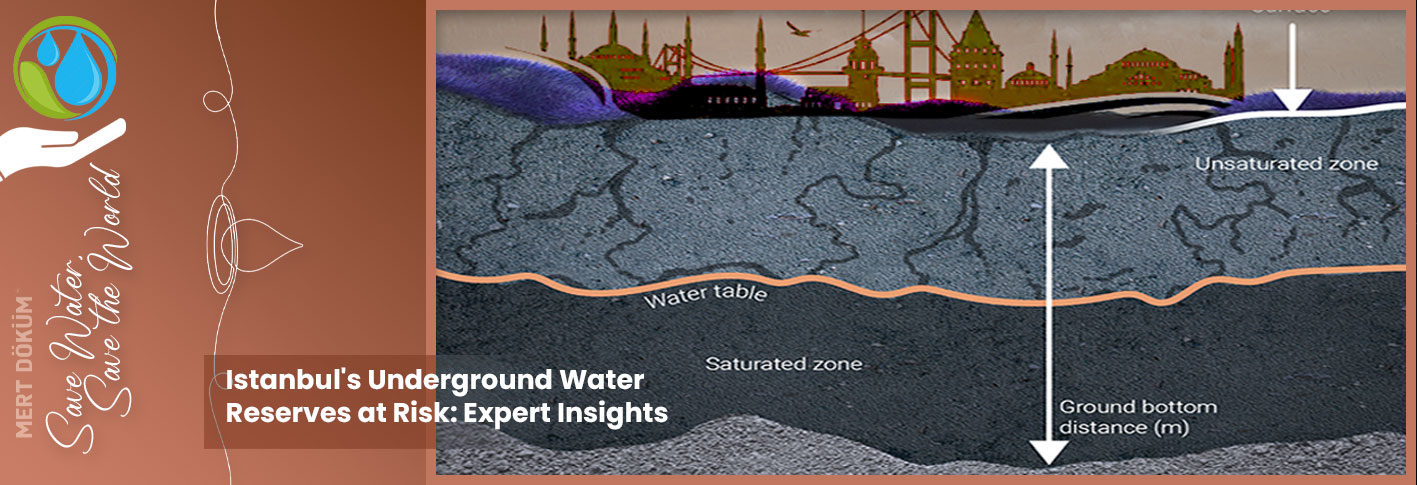
News & Articles
Istanbuls Underground Water Reserves at Risk, Expert Insights
Istanbul, a bustling metropolis straddling two continents, faces a pressing challenge that lies beneath its surface: the dwindling reserves of underground water. Despite boasting dams that are 70 percent full, the city's reliance on underground sources remains a cause for concern, according to leading experts.
Professor Dr. Irfan Yolcubal, a distinguished voice from Istanbul Technical University, sheds light on the critical water situation. He highlights the stark reality that Istanbul, with its voracious daily water consumption averaging 3 million cubic meters, grapples with insufficient underground resources. The Marmara Water Basin, vital to the city's sustenance, is now deemed "water poor," sounding the alarm for proactive measures.
"In case of a disaster, such as the anticipated Marmara earthquake or prolonged drought, our reliance on underground water as a backup system becomes paramount," asserts Dr. Yolcubal. He underscores the imperative to preserve and safeguard these reserves from the encroachment of urbanization and industrial expansion.
Dr. Yolcubal emphasizes innovative strategies for water conservation and replenishment. Rainwater harvesting emerges as a promising solution, where rooftops serve as catchments to harness precious rainfall for purposes like garden irrigation. However, he cautions against the menace of illegal wells that siphon off underground water, advocating stringent measures to curb such unauthorized extraction.
Cüneyt Gerek, a seasoned authority from the State Hydraulic Works, echoes concerns about the urban landscape's adverse impact on groundwater recharge. The proliferation of concrete jungles impedes the natural process of precipitation infiltrating the earth. Gerek advocates for the paradigm of "sponge cities" - urban environments designed to maximize rainwater absorption through permeable surfaces and green infrastructure.
Furthermore, Gerek suggests exploring the concept of underground dams as a viable alternative to bolster Istanbul's water security. These subterranean reservoirs could potentially mitigate the city's reliance on surface water sources, offering a resilient solution amidst mounting challenges.
As Istanbul navigates the complex nexus of rapid urbanization and environmental sustainability, the imperative to safeguard its underground water reserves looms large. Collaborative efforts, informed by scientific expertise and innovative urban planning, are essential to ensure the city's resilience in the face of uncertain water futures. Only through concerted action can Istanbul secure its lifeline beneath the surface and forge a sustainable path forward.